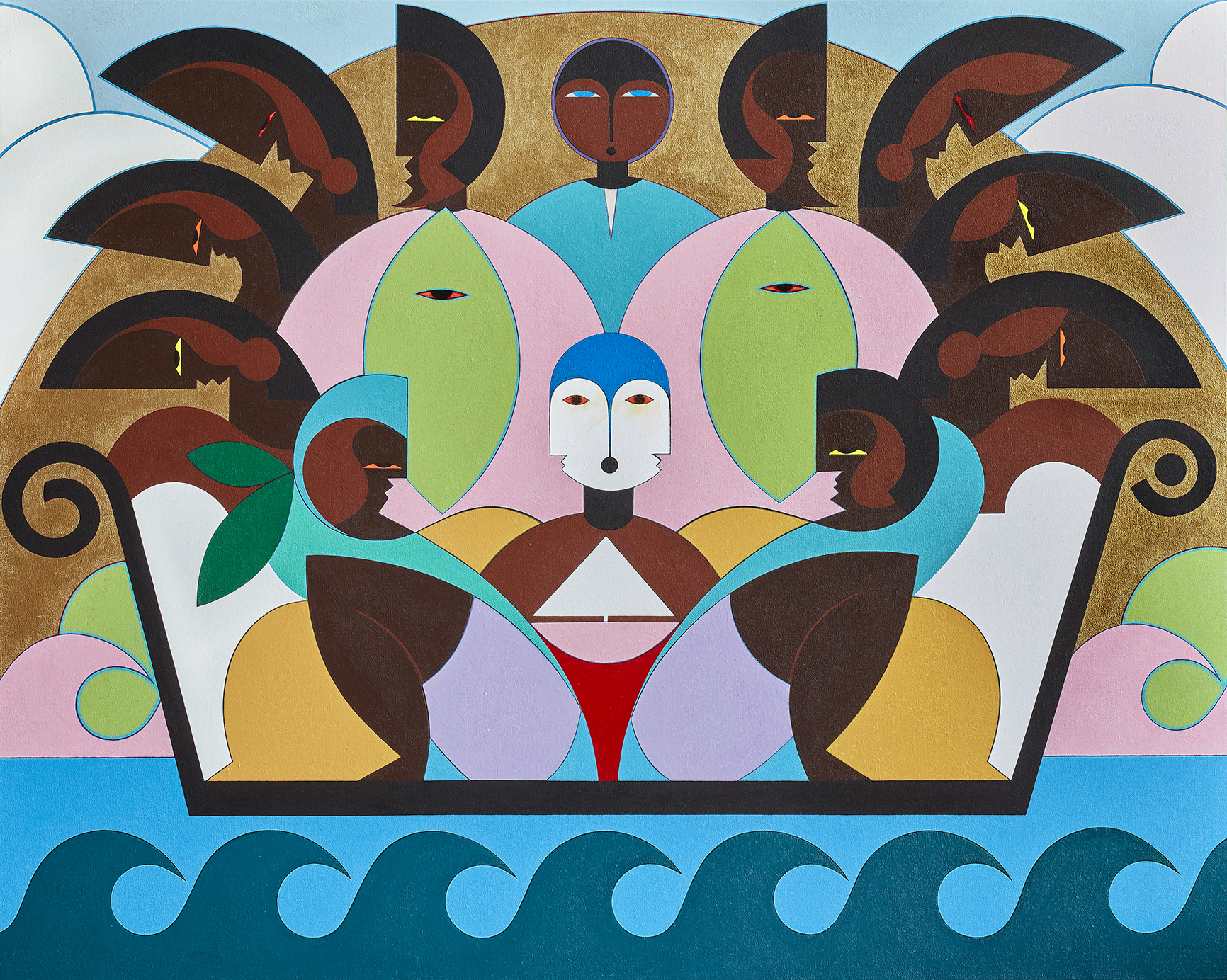Migrants—forced and voluntary, documented and undocumented, domestic and international, permanent and temporary—have transformed geo-political boundaries, nation states, cities, and civilizations throughout history. Our contemporary era is defined by unprecedented levels of global migration, with more people than ever living outside their place of birth. Migrants contend with new languages and cultural norms, racial and ethnic categorization, and discourses of citizenship that often cast them out as the “other.” These new contexts give rise to experiences of alienation and anxiety, loss and longing, hope and optimism. Through these experiences migrants transform the very places and cultures they come to inhabit—by laboring to establish cross-community ties and anchor themselves in new contexts. At our unique historical juncture, we will consider the past, present, and future of migration.
9:30–9:40 am
WELCOME
- Jamal J. Elias, Director, Wolf Humanities Center; Walter H. Annenberg Professor of the Humanities; Professor of Religious Studies, University of Pennsylvania
- Ishani Dasgupta, Research Associate, Wolf Humanities Center; Ph.D. Candidate, Anthropology and South Asia Studies, University of Pennsylvania
9:40–11:00 am
DIASPORIC WORLDS
Moderator: Harry Kashdan, Andrew W. Mellon Postdoctoral Fellow, Wolf Humanities Center
This panel will explore and interrogate the concept of diaspora as a tool for describing the history of human mobility and community-building. The relatively recent growth of Diaspora Studies has brought new nuance to this ancient word, yet the study of diasporas continues to exist in a tension between the real and ideal, or the specific and the general. Given the unique relationships that every diaspora has with homeland, culture, religion, state power, the economy, and more, is it possible to speak of diaspora as a trans-historical category? What does diaspora mean, and who gets to define it? In this panel, we invite scholars of diaspora to share insights from their own research and reflect on its relation to the broader field.
- Cheikh Babou, Associate Professor of History, University of Pennsylvania
- Susan Thomas, Assistant Professor of Cultural Foundations in Education, Syracuse University
- Tukufu Zuberi, Lasry Family Professor of Race Relations, Sociology, University of Pennsylvania
11:15 am–1:00 pm
THE MAKING OF THE REFUGEE
Moderator: Joel Pattison, Andrew W. Mellon Postdoctoral Fellow, Wolf Humanities Center
In 1993, Giorgio Agamben wrote that refugees are the central figures of our political history. Today, during a time of exacerbated refugee crises, his words ring as true as they did three decades ago. Foregrounding the figure of the refugee, this panel will dwell on the costs of war, genocide, and displacement that compel human movement across national borders. While considering how nation-states and humanitarian institutions are implicated in creating and managing the system of refugees, we will also throw light on the aspirations, hopes, and acts of resilience, solidarity, and resistance by those forced to flee their homelands. We ask: How do shifts in human cartographies impact the culture, history and social fabric of spaces that witness these shifts? How are memories, lives and community relations dismantled and recast under shifting geopolitical conditions?
- Navine Murshid, Director, International Relations Program; Associate Professor of Political Science, Colgate University
- Eleanor Paynter, Postdoctoral Associate, Cornell University
- Anooradha Iyer Siddiqi, Assistant Professor of Architecture, Affiliated Faculty, Columbia University
2:30–4:15 pm
IMMIGRATION RIGHTS
Moderator: Grace Sanders Johnson, Assistant Professor of Africana Studies, University of Pennsylvania
This roundtable brings together immigrant rights advocates, scholars and organizers across campus and the greater Philadelphia area to discuss the future of immigrant rights, with a special focus on students and workers. Participants will engage in a conversation about the state of immigrant rights. They will discuss the work their organizations have done to assist documented and undocumented students and workers, their ongoing projects, and the direction in which their organizations are headed.
- Joceline Perez Hernandez, Undergraduate Student Chair, Penn for Immigrant Rights, University of Pennsylvania
- Michael Jones-Correa, President’s Distinguished Professor of Political Science; Director, Center for the Study of Ethnicity, Race and Immigration, University of Pennsylvania
- Biju Mathew, Associate Professor of Business Administration, Rider University; Co-founder of the Forum of Indian Leftists (FOIL); Co-founder/organizer of New York Taxi Workers Alliance (Video presentation)
- Mohan Seshadri, Executive Director, Asian Pacific Islander Political Alliance
4:20–4:30 pm
CLOSING REMARKS
- Ishani Dasgupta, Research Associate, Wolf Humanities Center; Ph.D. Candidate, Anthropology and South Asia Studies, University of Pennsylvania
5:00–6:30 pm
KEYNOTE
Kukuli Velarde, Artist
in conversation with
Gwendolyn DuBois Shaw, Class of 1940 Bicentennial Term Associate Professor, History of Art, University of Pennsylvania



